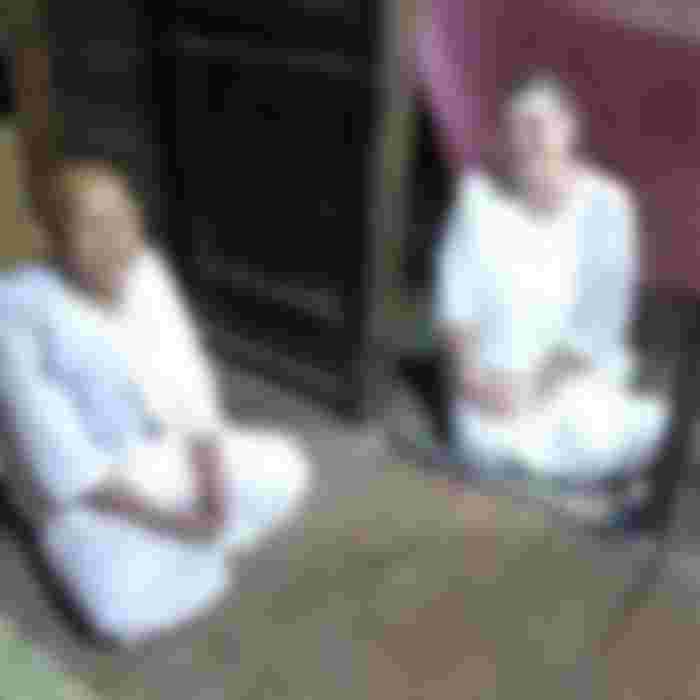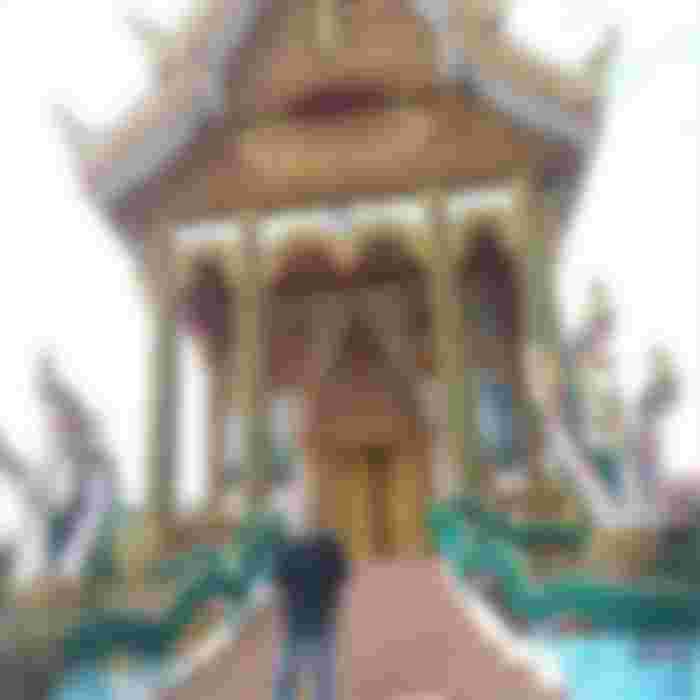Three (Writing Challenge)
I am on the last days of the medication that makes my brain so loopy. I still feel jittery and nauseous, but the spider bites are healing well. I am very grateful I did not have to go to the emergency room or have them debrided (removing damaged tissue).
On Friday, they looked at my bites and gave me a cream to put on them for a week. The only problem with that is I can't reach some of them and Keith is gone to work or not yet home during my waking hours.
Accompanying the shaking, nausea, and brain fog side effects of the combination of drugs is insomnia. Keith refuses to wake me when I need sleep. He is right not to. Bad things happen when I don't get enough sleep. Really bad things. That is a story for another day. I'm sure you'll read it eventually.
So, my brain is still all over the place and not very organized. You will have to bear with my ramblings. One cool thing is you will get a glimpse inside my mind. Don't worry. It's daylight out. The greasy, dark, back alley of my mind should be perfectly safe. There are even some really cool murals on the wall. You'll be fine.
Heavy on my mind the last few days, and I hope I can articulate this well without resorting to throwing things across the room, has been the political climate of my country.
The United States of America has always seen itself as a world leader, an innovator, a bastion of freedoms, a sponsor of human rights, and a defender of weaker nations against tyranny. My country has always seen itself as wearing the white hat, as being the good guy, as being a champion of the people. In fact, our constitution starts with those very words, We The People.
Recent events have shattered the rosy image of America as a protector and a benevolent leader with an iron grip.
50 years ago, we the people, fought long and hard to have a law implemented that gives pregnant people the right to privacy, the right to choose, and the right to have medical procedures be between themselves and their doctors.
Wikipedia says it much better than my brain is able to at the moment.
Roe v. Wade
From Wikipedia, the free encyclopedia
Jump to navigationJump to searchFor other uses, see Roe v. Wade (disambiguation).Roe v. WadeSupreme Court of the United StatesArgued December 13, 1971
Reargued October 11, 1972
Decided January 22, 1973Full case nameJane Roe, et al. v. Henry Wade, District Attorney of Dallas CountyCitations410 U.S. 113 (more)93 S. Ct. 705; 35 L. Ed. 2d 147; 1973 U.S. LEXIS 159ArgumentOral argumentReargumentReargumentDecisionOpinionCase historyPriorJudgment for plaintiffs, injunction denied, 314 F. Supp. 1217 (N.D. Tex. 1970); probable jurisdiction noted, 402 U.S. 941 (1971); set for reargument, 408 U.S. 919 (1972)SubsequentRehearing denied, 410 U.S. 959 (1973)HoldingThe Due Process Clause of the Fourteenth Amendment to the U.S. Constitution provides a fundamental "right to privacy" that protects a pregnant woman's liberty to abort her fetus. This right is not absolute, and has to be balanced against the government's interest in protecting women's health and protecting prenatal life. Texas's statutes making it a crime to procure an abortion violated this right.Court membershipChief JusticeWarren E. BurgerAssociate JusticesWilliam O. Douglas · William J. Brennan Jr.
Potter Stewart · Byron White
Thurgood Marshall · Harry Blackmun
Lewis F. Powell Jr. · William RehnquistCase opinionsMajorityBlackmun, joined by Burger, Douglas, Brennan, Stewart, Marshall, PowellConcurrenceBurgerConcurrenceDouglasConcurrenceStewartDissentWhite, joined by RehnquistDissentRehnquistLaws appliedU.S. Const. Amend. XIV;
Tex. Code Crim. Proc. arts. 1191–94, 1196Overruled byPlanned Parenthood v. Casey (1992) (in part)
Dobbs v. Jackson Women's Health Organization (2022)Roe v. Wade, 410 U.S. 113 (1973),[1] was a landmark decision of the U.S. Supreme Court in which the Court ruled that the Constitution of the United States generally protects a pregnant woman's liberty to choose to have an abortion. The decision struck down many U.S. federal and state abortion laws,[2][3] and fueled an ongoing debate in the United States about whether, or to what extent, abortion should be legal, who should decide the legality of abortion, and what the role of moral and religious views in the political sphere should be. It also shaped debate concerning which methods the Supreme Court should use in constitutional adjudication.
The case was brought by Norma McCorvey—known by the legal pseudonym "Jane Roe"—who in 1969 became pregnant with her third child. McCorvey wanted an abortion but lived in Texas, where abortion was illegal except when necessary to save the mother's life. Her attorneys, Sarah Weddington and Linda Coffee, filed a lawsuit on her behalf in U.S. federal court against her local district attorney, Henry Wade, alleging that Texas's abortion laws were unconstitutional. A three-judge panel of the U.S. District Court for the Northern District of Texas ruled in her favor and declared the relevant Texas abortion statutes unconstitutional.[4] The parties appealed this ruling to the Supreme Court of the United States.
On January 22, 1973, the Supreme Court issued a 7–2 decision holding that the Due Process Clause of the Fourteenth Amendment to the United States Constitution provides a fundamental "right to privacy", which protects a pregnant woman's right to an abortion. But the Court also held that the right to abortion is not absolute and must be balanced against the government's interests in protecting women's health and prenatal life.[5][6] The Court resolved these competing interests by announcing a trimester timetable to govern all abortion regulations in the United States. During the first trimester, governments could not regulate abortion at all, except to require that abortions be performed by a licensed physician. During the second trimester, governments could regulate the abortion procedure, but only for the purpose of protecting maternal health and not for protecting fetal life. After viability (which includes the third trimester of pregnancy and the last few weeks of the second trimester), abortions could be regulated and even prohibited, but only if the laws provided exceptions for abortions necessary to save the "life" or "health" of the mother.[6] The Court also classified the right to abortion as "fundamental", which required courts to evaluate challenged abortion laws under the "strict scrutiny" standard, the most stringent level of judicial review in the United States.[7]
The Supreme Court's decision in Roe was among the most controversial in U.S. history.[8][9] Anti-abortion politicians and activists sought for decades to overrule the decision. Despite criticism of Roe, the Supreme Court reaffirmed its “central holding” in its 1992 decision Planned Parenthood v. Casey,[10] although Casey overruled Roe's trimester framework and abandoned Roe's "strict scrutiny" standard in favor of a more malleable “undue burden” test.[5][11]
On June 24, 2022, the Supreme Court overruled Roe in Dobbs v. Jackson Women's Health Organization.[12][13]
Fifty years later, we the people are once again fighting our own country, the defender of the weak, the protector of human rights. Fifty years later, our rights have been set back. We are no longer considered capable of making adult decisions by our adult selves.
The overturning of Roe v. Wade leaves it up to the states to decide whether abortion is legal or not. But it also sends a clear message to people who can get pregnant that they are second-class citizens. It also sends a message to people who practice Judaism that they no longer have religious freedom in the country that was FOUNDED upon religious freedom.
The overturning of Roe v. Wade is only the first step in the grab for power by the extreme right, conservative, Christian base. Clarence Thomas, the Associate Justice of the Supreme Court of the United States has already said he wants to take a closer look at the laws surrounding contraceptive rights, trans rights, and gay marriage. Rights that WE THE PEOPLE have fought for.
The overturning of Roe v. Wade sends a statement to all those who are not cis, hetero, white, male, Christians that they are second-class citizens. What's next for us who do not fall into that description?
There's a lot of global angst in the air right now. People are talking about organizing. People are talking about protesting. People are talking about a revolution. People are talking about throwing bricks and Molotov cocktails. And I just want to go back to a simpler time, not that long ago.
2018, in fact.
I'm going to post these images of what I would rather be doing, seeing, smelling, and experiencing. These are photos from our 1 month-long vacation to Laos in 2018. I would rather be somewhere simpler in the sense of being close to nature and history (not political history). Being close to people who are so welcoming and beautiful. I often fantasize about returning to S. E. Asia to be an ex-pat and live out my years surrounded by jungle and beautiful people. I definitely want to spend more time in monasteries. I want to spend more time receiving Buddhist blessings and walking around ancient temples.
I know every country has its troubles. When I don't speak the language, I can't get angsty. I know it is an idealized version of reality. Angst is everywhere. Politicians and governments are shit everywhere. War is everywhere. Badness is everywhere. But in 2018, for one month, I was blissfully unaware of my surroundings, other than in the very visceral sense.
Here are the photos.

Five thousand-year-old temple

The view down from the steps leading to the five-thousand-year-old temple. This climb was fairly steep, and the steps made it steeper.

Monks will make these blessing bracelets. When you sit before the monks, they tie the bracelet around your wrist and say a blessing over it.

In the doorway of my room at the monastery where I stayed for a week.

The beauty of the temples cannot be captured in a photo. We tried, though.
I've managed to get myself all worked up today. So, I'm done. Please comment freely, but, please, please, please be kind. My story today isn't about who is right and who is wrong. It is about a nation in turmoil. It is about the universal angst we are all feeling right now. It is about wanting an escape from reality. Not religion. Not abortion. Not morality.
Lead image license free from unsplash





Yes you are very true our countries have own struggles as we face life everyday, and living simply wayback many years before where ₱50($1)can already give you a total happiness and we can live a more safer place wherever weare unlike today everywhere is not safe anymore :(